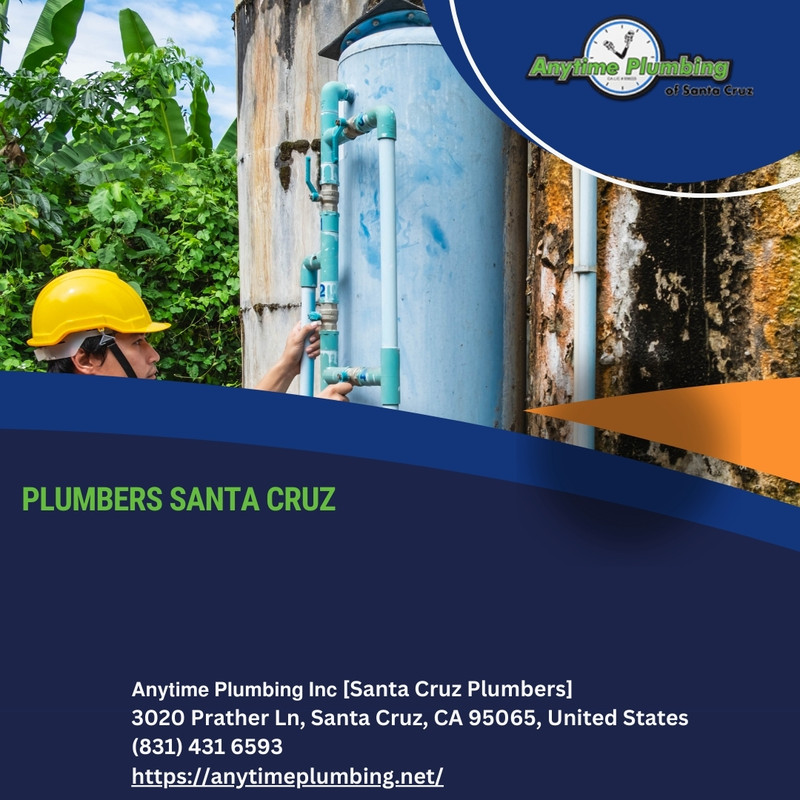" width="560" height="315" frameborder="0" allowfullscreen>
" width="560" height="315" frameborder="0" allowfullscreen>
Introduction
When it comes to home maintenance, few tasks are as crucial yet often overlooked as ensuring your water heater is functioning efficiently. For residents of Santa Cruz, an area known for its picturesque coastline and vibrant community, maximizing efficiency with your water heater can lead to significant savings on energy bills, improved comfort, and a reduced environmental footprint. In this comprehensive guide, we will delve into the essential aspects of water heater replacement in Santa Cruz. With insights from local experts like Felton plumbers and Soquel plumbers, we aim to empower homeowners with the knowledge needed to make informed decisions regarding their water heating systems.
Understanding the Importance of Water Heater Efficiency
Why Is Water Heater Efficiency Important?
Water heaters are one of the largest energy consumers in a household. An efficient unit not only reduces energy bills but also enhances the lifespan of the appliance. In Santa Cruz, where utility costs can be high, optimizing your water heater’s efficiency is a smart move.
Signs It’s Time for Replacement
Before diving into replacement options, it’s essential to recognize signs that indicate it’s time for a change. Here are some common indicators:
Age: If your water heater is over ten years old, consider replacing it. Rusty Water: Discolored or rusty water can signify corrosion inside your tank. Strange Noises: Banging or popping sounds may mean sediment buildup. Increased Bills: A sudden spike in energy costs could indicate inefficiency.Maximizing Efficiency with Water Heater Replacement: A Guide for Santa Cruz Residents
Choosing Between Tankless vs. Traditional Water Heaters
Tankless Water Heaters
Tankless water heaters heat water on demand rather than storing it in a tank. This leads to increased efficiency since they only use energy when hot water is needed.
- Pros: Energy-efficient Space-saving Longer lifespan (up to 20 years) Cons: Higher initial cost May require upgrades to gas lines or electrical systems
Traditional Storage Water Heaters
These heaters store and continuously heat a specific amount of water.
- Pros: Lower upfront cost Simple installation process Cons: Less energy-efficient Limited supply of hot water
Evaluating Your Home's Hot Water Needs
Assessing Hot Water Usage
Understanding your household's hot water usage patterns is crucial before replacement:
- How many people live in your home? What appliances rely on hot water? Do you have peak usage times?
This assessment will help determine the size and type of system best suited for your needs.
Consulting Local Experts: Felton Plumbers & Soquel Plumbers
Engaging professionals can significantly simplify the decision-making process:
- They can provide insights based on local conditions. They'll assess existing plumbing to ensure compatibility with new systems.
Energy Efficiency Ratings Explained
Understanding Energy Factor (EF)
The Energy Factor (EF) rating indicates how efficiently a water heater converts energy into hot water:
- Higher EF ratings mean greater efficiency. Look for units with an EF of .67 or higher for better performance.
The Role of ENERGY STAR Certification
Products bearing the ENERGY STAR label meet best plumber in santa cruz strict efficiency guidelines set by the U.S. Environmental Protection Agency:
Investing in such products can lead to substantial long-term savings. They contribute positively towards reducing environmental impact.Installation Process Overview
Preparing for Installation by Felton Plumbers & Soquel Plumbers
Before installation day arrives, here's what you need to do:
- Clear space around the old unit. Ensure accessibility for technicians.
What to Expect During Installation
During installation, expect:
Removal of the old unit. Proper disposal according to local regulations. Installation of new piping if required.Post-Replacement Maintenance Tips
Regular Maintenance Practices
To keep your new system running efficiently:
Flush the tank annually to remove sediment buildup. Check temperature settings; ideally between 120°F and 140°F.Signs That Maintenance Is Needed
Look out for these red flags post-installation:
Unusual noises during operation. Fluctuations in hot water availability.FAQs About Water Heater Replacement in Santa Cruz
Q1: How often should I replace my water heater?
A1: Generally every ten years unless issues arise sooner due to wear and tear.
Q2: Can I install a new unit myself?
A2: While some DIY enthusiasts may attempt this, hiring professional Felton plumbers ensures safety and compliance with local codes.
Q3: What size heater do I need?
A3: It depends on household size; consult experts who can provide tailored recommendations based on your needs.

Q4: Are there any rebates available?
A4: Yes! Check local utility companies as they often offer incentives for energy-efficient replacements.
Q5: How do tankless systems handle multiple demands?
A5: A properly sized tankless system can manage simultaneous demands effectively; however, larger households may need more than one unit.
Q6: What's the best way to reduce heating costs?
A6: Insulating pipes and setting lower temperature limits can significantly cut costs while maintaining comfort levels.
Conclusion
Maximizing efficiency with water heater replacement is not just about choosing an appliance; it's about understanding your needs and making informed decisions that benefit both your wallet and our planet. By engaging local experts like Felton plumbers and Soquel plumbers, you're taking a significant step towards achieving optimal results tailored specifically for Santa Cruz residents' unique climates and lifestyles.
Whether you decide on a traditional storage system or opt for cutting-edge tankless technology, remember that proper installation and regular maintenance are key components of long-term success. We hope this guide empowers you as you embark on replacing your old system with an efficient model that meets all your hot-water needs!
(831) 431 6593